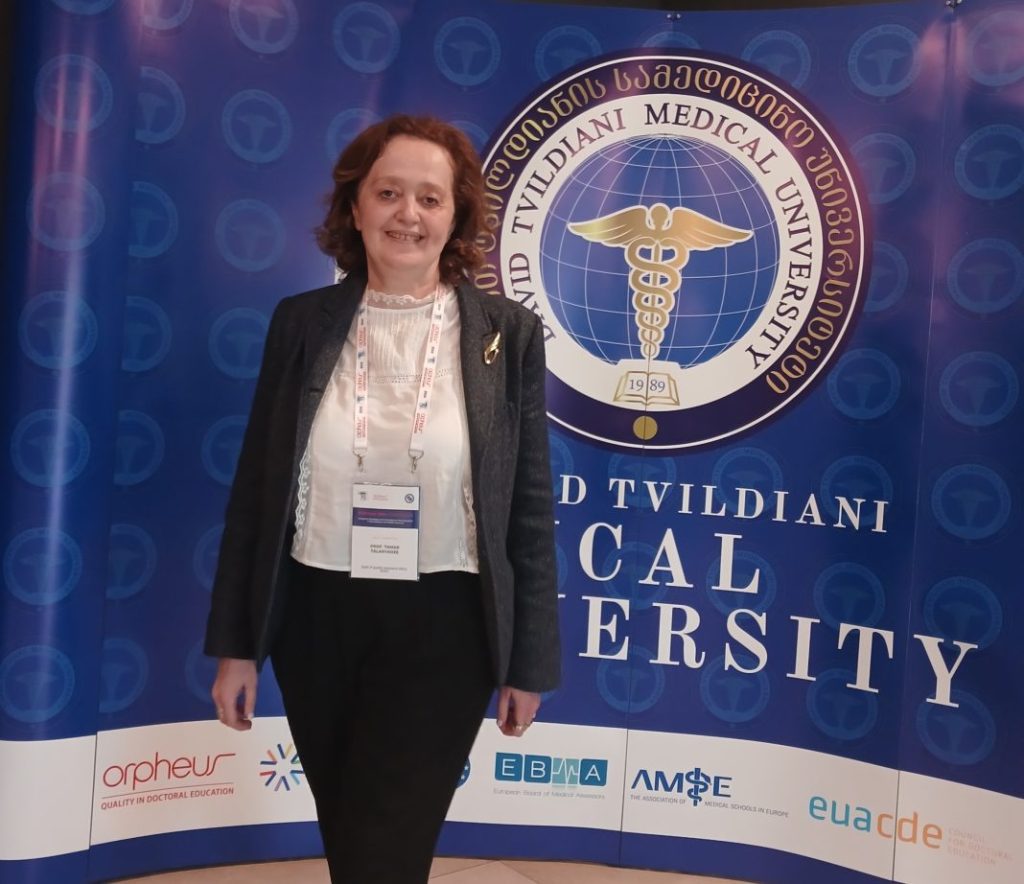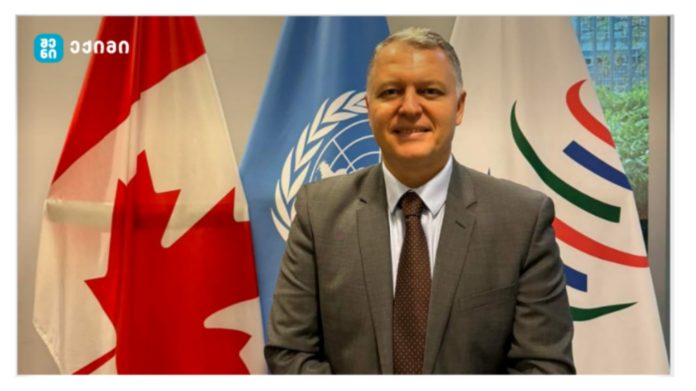Patient Safety: Protecting Patients as a Fundamental Right
Patient safety is a fundamental human right, serving as a key indicator of healthcare quality across the globe. Ensuring that patients receive safe, effective, and reliable care should be the cornerstone of any healthcare system.
Unfortunately, preventable medical errors and unsafe care practices continue to affect millions of patients worldwide, highlighting the urgent need for comprehensive safety protocols. In Georgia, the Public Health Institute of Georgia (PHIG), alongside media outlets such as “Sheni,” is working to inform both healthcare providers and patients about the importance of patient safety as a fundamental right.
This article explores the challenges faced by Georgian hospitals, the legal and ethical responsibilities involved, and how solutions like international accreditation, staff training, and patient advocacy can transform healthcare quality in Georgia. We also look at successful examples from other European countries that have made strides in patient safety through similar initiatives.
Patient Safety: A Human Right and Indicator of Healthcare Quality
Patient safety is not just a healthcare metric—it is a basic human right. Safe healthcare ensures that patients receive the right treatment at the right time, minimizing risks such as surgical errors, medication mistakes, and hospital-acquired infections. Globally, unsafe care is one of the top 10 causes of death and disability, with millions of patients affected each year.
As Professor Giorgi Pkhakadze, Founder and Chair of PHIG, states:

“Patient safety is the foundation of healthcare quality. Without it, we cannot speak of healthcare in any meaningful sense. Protecting patients from harm is both a legal and ethical responsibility that no hospital can afford to ignore.”
In countries like Sweden, patient safety is integrated into national healthcare policies, where government regulations mandate stringent safety protocols across all healthcare facilities. This approach has resulted in a significant reduction in medical errors and hospital-acquired infections, setting an example for other European nations, including Georgia, to follow.
Challenges in Georgian Hospitals
Despite the global focus on patient safety, Georgian hospitals still face several challenges. Common safety risks include:
1. Medication Errors: Mistakes in prescribing or administering medication can lead to serious, sometimes fatal, complications. In the UK, healthcare facilities have implemented electronic prescribing systems to reduce these risks. Georgia is still working to standardize similar systems across its healthcare institutions.
2. Hospital-Acquired Infections (HAIs): These infections, contracted during a patient’s stay in the hospital, can prolong recovery times or even lead to death. In Germany, hospitals have adopted strict hygiene protocols that have significantly reduced the incidence of HAIs. Georgian hospitals are working toward implementing similar infection control measures.
3. Surgical Complications: Surgical errors, including wrong-site surgeries or postoperative infections, are a major concern. In France, preoperative checklists and standardized protocols have proven effective in reducing surgical complications. Georgian hospitals are in the process of introducing these life-saving practices.
These challenges underscore the need for urgent reforms in Georgian healthcare to align with international patient safety standards.
Legal and Ethical Responsibilities of Healthcare Providers
Hospitals are not only morally obligated but also legally responsible for ensuring patient safety. This duty extends beyond the clinical treatment provided to include the overall care environment, which must minimize risks of harm. International accreditation bodies such as Joint Commission International (JCI), Accreditation Canada (AC), and the Australian Council on Healthcare Standards (ACHS) set stringent standards to ensure that hospitals provide safe, high-quality care.
Professor Tamar Talakvadze, the local advisor for Accreditation Canada, emphasizes:

“Accreditation is not just about passing an audit—it’s about embedding safety and quality into the daily operations of a hospital. Patients have the right to know that their healthcare facility follows the highest standards.”
Accredited hospitals are required to meet these international standards, ensuring that safety protocols are consistently followed, reducing risks of medical errors, and improving patient outcomes.
Solutions: Safety Protocols, Staff Training, and Transparency
Improving patient safety in Georgia will require a multi-pronged approach that includes:
1. Safety Protocols: Implementing standardized protocols for medication administration, infection control, and surgical safety is essential. For example, Denmark’s adoption of system-wide safety protocols, including electronic health records and barcode scanning for medications, has significantly reduced medical errors. Georgian hospitals must adopt similar systems to ensure patient safety.
2. Staff Training: Continuous training for healthcare professionals is critical to maintaining high safety standards. The Netherlands has seen success with mandatory ongoing training programs focused on patient safety and quality care. In Georgia, efforts to provide regular training on new technologies, infection control, and patient communication are underway.
3. Culture of Transparency: Fostering a transparent healthcare environment where staff can report errors without fear of punishment is crucial. In Norway, transparency initiatives have encouraged healthcare workers to openly discuss mistakes, which has led to system-wide improvements. Georgian hospitals are being encouraged to create similar safe reporting environments.
Professor Giorgi Pkhakadze stresses:
“Safety protocols and training are only as good as the culture in which they exist. Hospitals must foster an open and transparent environment where staff feel comfortable reporting safety concerns. Without this, real progress is impossible.”
Patient Advocacy: Empowering Patients to Protect Their Safety
Informed patients are safer patients. When individuals understand their rights and know how to advocate for their own safety, they become active participants in their care. Media outlets like “Sheni” are playing a critical role in educating patients about their rights and the risks they may face in the healthcare system.
Ms. Tatia Gochadze, Editor-in-Chief of “Sheni,” explains:

“Patients cannot advocate for their safety if they don’t understand their rights. It’s our responsibility to make sure that every patient, no matter their background, can easily understand the protections available to them. At ‘Sheni,’ we focus on breaking down complex healthcare information into accessible language so patients feel empowered.”
In the UK, patient advocacy organizations have helped ensure that patients are educated about their rights and know how to report concerns. Georgia is following suit, with media outlets and public health organizations working together to inform patients of their safety rights and the measures they can take to protect themselves.
Moving Forward: A Safer Future for Georgian Healthcare
The future of healthcare in Georgia must be built on a foundation of patient safety and accountability. By adopting international accreditation standards, implementing safety protocols, and fostering a culture of transparency, Georgian hospitals can significantly reduce preventable harm and improve patient outcomes. Equally important is empowering patients to advocate for their own safety by ensuring they understand their rights through accessible, clear language.
As Professor Tamar Talakvadze notes:
“Accreditation and patient safety go hand in hand. When hospitals meet international standards, they create safer environments where both staff and patients can thrive. It’s a shared responsibility.”

With the combined efforts of PHIG, patient councils, and educational platforms like “Sheni,” Georgia’s healthcare system is on the path to becoming safer, more transparent, and more patient-centered. By learning from the successes of other European countries and implementing these practices, Georgia can ensure that patient safety becomes not only a priority but a guaranteed right.





